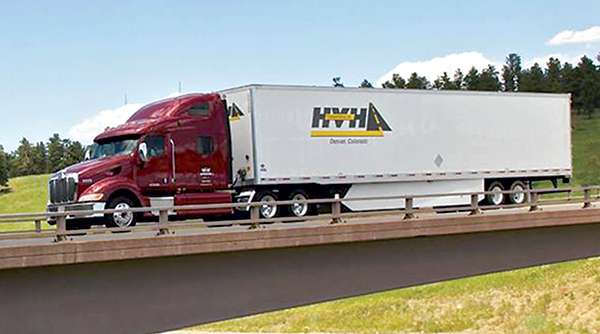Staff Reporter
2019 Trucking Company Closures So Far Have Doubled All of 2018

[Stay on top of transportation news: Get TTNews in your inbox.]
More trucking firms have shut down during the first six months of 2019 than in all of 2018, a result of a softer freight market and the broader effects of tariffs on imported goods, a freight market expert said.
“Tariffs are terrible taxes,” Donald Broughton, principal of Broughton Capital of Missouri, told Transport Topics on Sept. 5. “They are one of many if not the largest negative factors in our economy.”
DEC. 9 UPDATE: Celadon files for bankruptcy, shuts down
Broughton believes tariffs are partially responsible for the decreased freight demand, and coupled with lower spot prices, have contributed to the trucking firm failures.

Broughton
In the first half of 2019, he said 640 freight companies closed their doors. On average, these companies each had about 30 drivers, resulting in 20,075 trucks being pulled off the road. Compare that to 2018, when freight was booming. During the first half of that year, Broughton said 175 companies closed — each averaging about nine drivers — taking 1,550 trucks off the road. For all of 2018, 310 trucking companies closed, Broughton said.
“It’s happening because costs went up last year as pricing power rose,” Broughton told TT, noting that while spot prices have dropped dramatically this year, costs such as driver pay and expansion-related expenses have largely stayed at 2018 levels.
“If your costs don’t come down, and your pricing does, you become unprofitable,” said Broughton.
This confluence of circumstances hit Denver-based truckload carrier HVH Transportation Inc., forcing it on Aug. 27 to suddenly shut down while drivers were still on the road.
Company CEO John Kenneally told Transport Topics that higher insurance rates slammed the company as summer approached. While HVH had been paying $150,000 a month with a $100,000 deductible, he said the insurer raised the monthly rate to $358,000 and also asked for a $750,000 payment to write the policy. Kenneally said the increased liability costs hurt HVH’s cash flow.
On top of that, the company’s bank froze its assets in late August after its liquidity dipped below $500,000 — the second time this had happened, a senior company official said. The first time was in March. The frozen accounts forced the closure, the official said.
According to Kenneally, HVH grossed $60 million in 2018. The company had more than 120 drivers, 250 contracted owner-operators and 75 office employees, and owned a terminal in Henderson, Colo. It owned just 20 tractors, however; the remainder of its fleet of 380 trucks were leased through Penske Truck Leasing Corp. and Ryder System Inc., he said.
The sudden closure caused challenges for some HVH drivers, including Enzo Pallette, who delivered his last load to Yakima, Wash., on Aug. 28, but then learned that his fuel card had been shut off. Fortunately, the company got the cards reinstated, so Pallette was able to drive home to Los Angeles County in California. Once home, he planned to return the company’s leased truck.
For its part, leasing company Penske said it was accepting returns of HVH-leased trucks. “Penske Truck Leasing can confirm that HVH Transportation is a customer and that it has begun repossessing its units,” Penske spokesman Randolph Ryerson told TT. “Any HVH Transportation drivers with Penske units still in their possession should turn in vehicles to their nearest Penske location or call.”
Ryder declined to comment.
HVH is owned by HCI Equity Partners, a financial firm with offices in Washington, Chicago and Minneapolis. HCI referred TT back to Kenneally.
The sudden closure of HVH left employees scrambling. Shari Lee Campbell, a driver manager for the company, said she began calling drivers to urge them to fuel up so they could make it home, but was then directed to go home by a manager. Once home, she continued making calls. Campbell told TT that the company’s cash flow problems became too much to handle.
“They ran out of money,” she said.
Major trucking firms that have closed in 2019 include New England Motor Freight of Elizabeth, N.J.; Falcon Transport of Youngstown, Ohio; LME Inc. of New Brighton, Minn.; and Starlite Trucking of Ceres, Calif. Other closures came within larger companies, including Highland Transport, closed by TFI International; and Schneider Direct, a final-mile delivery service closed by Schneider.


